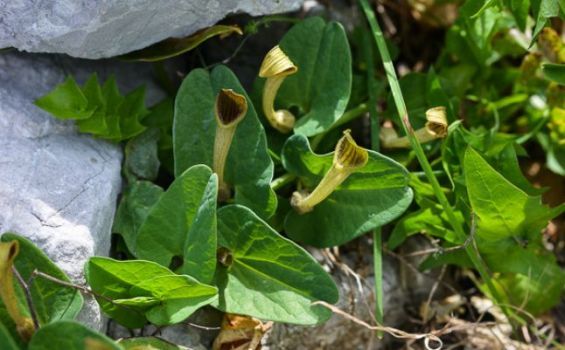Researchers have found that a form of Moroccan fungus has shown promising results as a powerful opponent of aggressive triple negative breast cancer. According to scientists from the Medical College of Georgia at Augusta University, the fungus grows on the roots of the plant known as Aristolochia paucinervis.
Early evidence indicates that peptide (EnnA) isolated from the fungus that lives symbiotically with the flowering plant «directly inhibits the natural and powerful cell protector HSP90, which cancer hijacks to help avoid attack by the immune system».
Indeed, Dr Ahmed Chadli, a biochemist in the Department of Medicine and Georgia Cancer Center at the Medical College of Georgia at Augusta University, wrote that «EnnA lets the immune system do what it should by getting HSP90 out of the way».
«We are very excited about how this compound is affecting tumors», said Chadli who received a $1.8 million grant from the National Cancer Institute to further study EnnA's potential in beating breast cancer.
Cancer-fighting fungus
The plant Aristolochia paucinervis and the fungus that grows on its roots, known as Fusarium tricinctum, are known for their medicinal benefits, Dr Chadli acknowledged. Based on evidence on both cell culture and an animal model of aggressive triple negative breast cancer, EnnA is «the kind of efficacious tumor killer [he] has been looking for», the same source added.
Microscopic images of the breast cancer tumor, following 15 to 20 days after treatment with EnnA, show the tumor full of holes. «The immune system starts to recognize the cancer cells as foreign and goes and destroys them», Chadli said.
«We've found that cells killed by EnnA also seem to immunize against subsequent cancer cell assault», he said, adding that «tumors cannot take hold in mice vaccinated with these dead cells».
«One of the fascinating things about T cells is that once they are educated to attack a target, like triple negative breast cancer, they continue to attack it whenever it shows up. The implications of this make EnnA's activation of a T cell response a powerful tool».
Chadli identified EnnA after attending a Moroccan Pharmacology Society Meeting a few years ago. There, he met Dr. Abdessamad Debbab, a medicinal chemist at the Institute for Pharmaceutical Biology and Biotechnology at Heinrich-Heine-University Düsseldorf. The two researchers identified HSP90 inhibitors after screening medical plants.
The Moroccan plant in question flowers in February and attracts flies. The plant traps the flies overnight and releases them the next day coated in pollen.
Chadli and his team, relying on the new grant, plan to further examine the benefits of EnnA, possible side effects, toxicity and optimal dosing in their attempt to start using it to help patients.





 chargement...
chargement...













